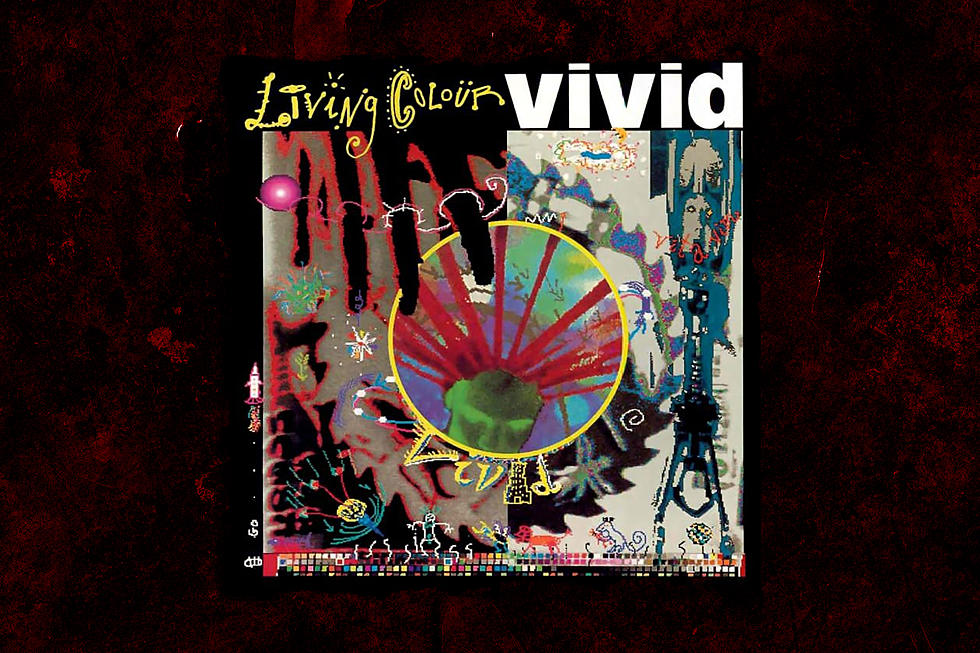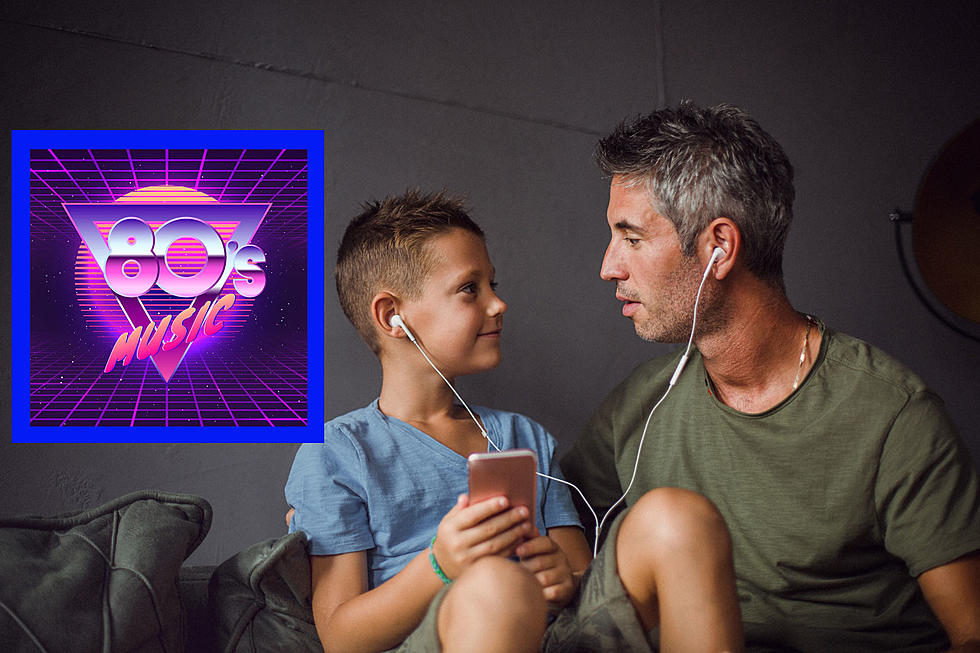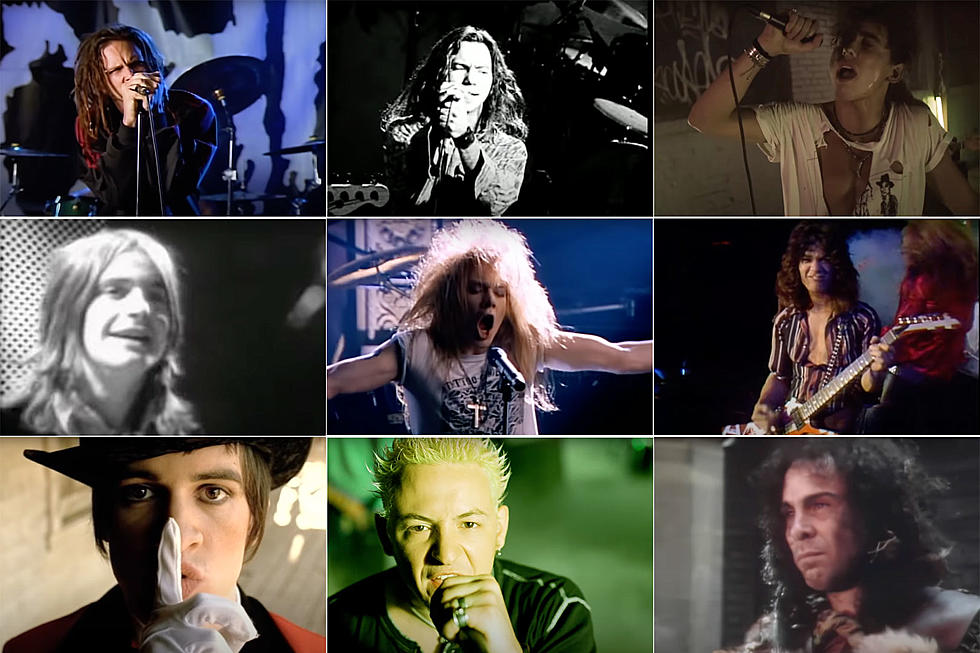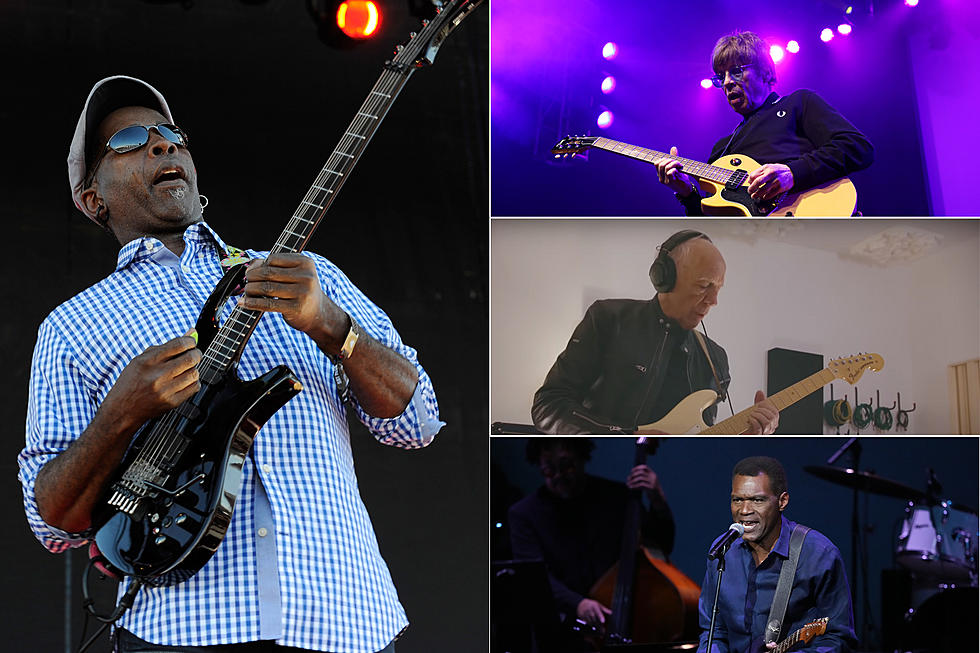
Living Colour’s ‘Vivid’ Still Resonates in the Black Lives Matter Era
Three decades after its release, it's still difficult to categorize Living Colour, and their debut album, Vivid. But in the pre-streaming, pre-downloading, pre-internet era of fairly strict radio formats, it felt otherworldly. It has Zeppelin-sized riffs and a Talking Heads cover. It has socially conscious lyrics but straight up pop songs. The musicianship appealed to metal guitar fans, but also with the Bad Brains CBGB audience. Chuck D and Flavor Flav of Public Enemy cameoed on the album, and so did Mick Jagger. It was played on mainstream rock radio, modern rock radio and MTV's Headbanger's Ball.
"The Vivid album is kind of all over the place," guitarist Vernon Reid says. "It was the influence of Led Zeppelin's Houses of the Holy and a bit of The Beatles' The White Album. They were records that were kind of all over the place. [Zeppelin's] 'The Crunge' is on the same record as 'The Rain Song' and 'The Ocean.' And 'D'yer Mak'er.' It’s an amazing record. 'Revolution' is on the same record as 'Revolution #9.' I was in the younger generation of people listening to FM rock. I was discovering things like King Crimson and Gentle Giant, but I was still listening to James Brown and Sly and the Family Stone and Kool and the Gang, it’s not like I stopped listening to anything. That didn’t stop me from listening to Yes, but listening to Yes didn’t stop me from listening to War, or Mandrill. I started listening to Talking Heads. I got turned on to them from Brian Eno, who I was turned on to because of Robert Fripp. And me and [drummer] Will Calhoun were both fusion fans."
Reid is a voracious fan of music, without the snobbery that often comes with that. "My sense of music was cumulative as opposed to subtractive. I never grew out of things, I would just add things. I was part of a post-free jazz movement. My first real professional experience was with Ornette Coleman’s former drummer, Ronald Shannon Jackson, and his band the Decoding Society. There was a scene around that. There was also the punk-funk of Defunkt. Rip Rig and Panic; Eye & I, with my friend [future Rollins Band bassist] Melvin Gibbs. It was the first band to have a DJ as a regular member of the band, that was DJ Logic."
In '88, hip-hop was still a relatively new art form, with many rock bands dismissive of the genre. "I played on the first Public Enemy album, [1987's] Yo! Bum Rush the Show," Reid notes. And his hip-hop influence was evident on Vivid's "Funny Vibe" (which features the Public Enemy cameo).
"‘Funny Vibe’ was really the first Living Colour song," Reid recalls. "It came about because a little old white lady was clutching her handbag when I was on the elevator with her in a department store."
It's a song that is painfully timely, three decades later.
"Mmm-hmmm," he agrees. "People were a little too quick to declare post-racialism, it was a bit shocking. It’s like if someone says, ‘Well, that’s settled!’ But there’s still mad items on the agenda to still be discussed. ‘But wait, we still have to talk about a whole host of issues!’ That’s been a problem. There’s this history. One party wants to have a detailed discussion about it, the other party doesn’t really want to engage, and kind of doesn’t really want to change. It’s a messy problem. It’s great that what we had to stay is still relevant, but it’s also kind of painful that it’s still relevant. It’s disturbing that it’s still relevant."
The conversation then turns to Black Lives Matter. "What’s being said is, ‘We’re not to just be discarded.’ It’s as if one party is ready to hear anything that causes it discomfort as an attack. Instead of actually having a discussion and being able to listen and being able to hear, it’s like: one person’s idea of equality it another person’s threat. When somebody says, ‘So-and-so is playing the race card,’ I say, ‘Who printed the deck?’ When we’re talking about challenging racism, for a lot of people, we’re talking about challenging the beliefs of their grandparents, or their parents."
"The fact that we're African Americans has a lot to do with what's on the record and what we see in our lives," Reid told Rolling Stone, "but all our problems aren't generated by the fact that we're black." And that's true: the album's closer, "Which Way To America?" has the lyrics "I look at the T.V./Your America's doing well/I look out the window/My America's catching hell," speaks to those living in the inner cities, trailer parks or rural communities; it worked in 1988 and sadly, still does in 2018.
"I can understand why someone hearing the term ‘white privilege,' who is not particularly privileged, would react negatively to that. I get that. But 'Which Way to America'... that’s the funny thing about it. If you want to be universal, be specific. It’s counter-intuitive. But if you tell your story honestly, someone else will say, 'I've gone through that too.'"
Much of the album's success is due to the opening track and lead single, "Cult of Personality." It's a song that certainly has surprisingly universal appeal, and could be applied to President Obama, or President Trump. "The National Review, a conservative right-wing publication, did a list of the top conservative rock tunes, and I saw that 'Cult of Personality' was towards the top of their list. And I was like, 'That’s so strange. That’s not where we’re coming from.' But their take was: the song is about rock against totalitarianism. That song doesn’t really take sides. It says, essentially, there’s a reason why people follow Martin Luther King and Malcolm X. There’s something that unites Mussolini and Gandhi."
As for the future, Reid isn't sure when the band will work on another album, but he says that he's planning a solo album this year. Meanwhile, Living Colour are still doing a few dates in support of last year's Shade album. See their tour schedule here.
More From Loudwire









